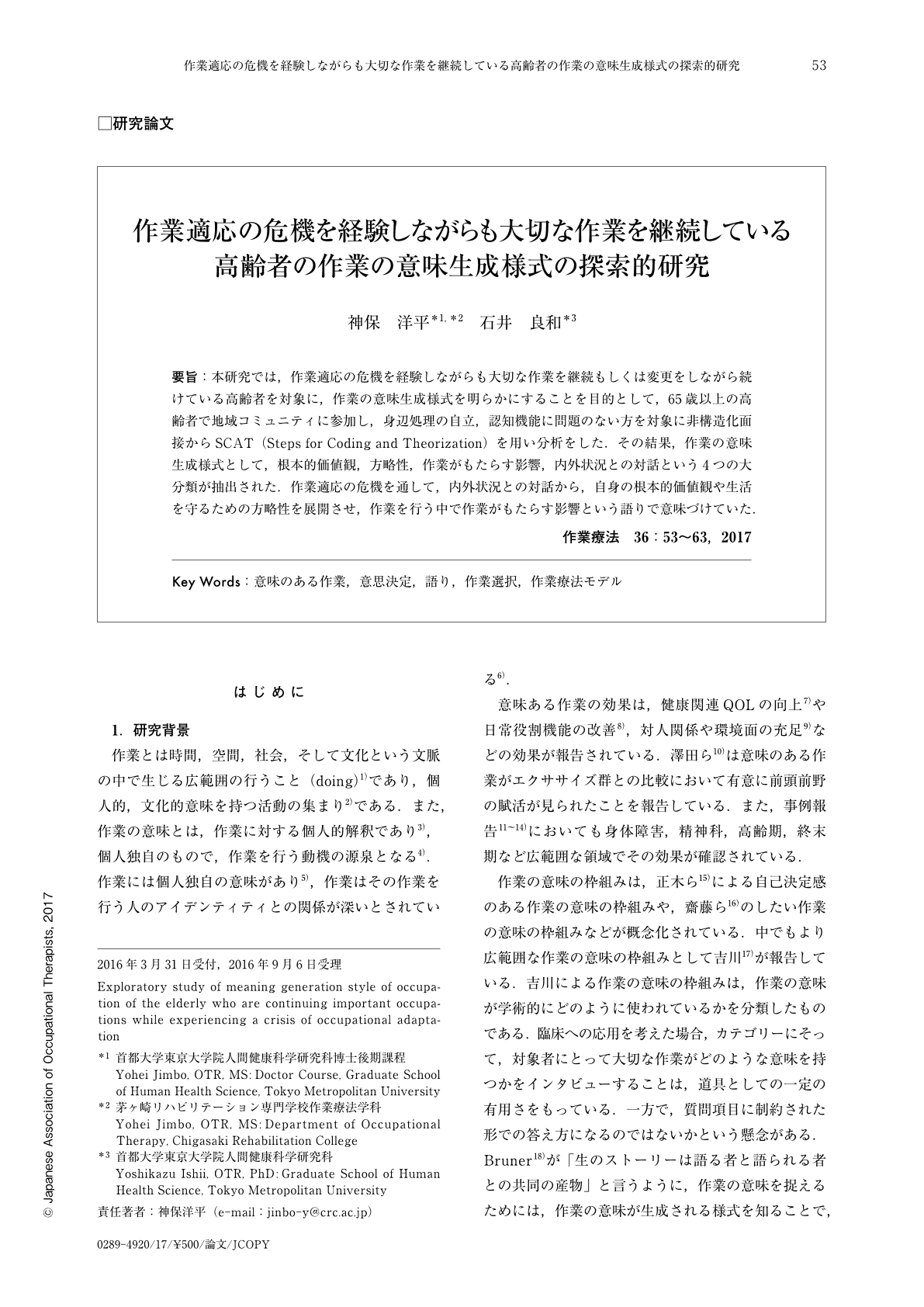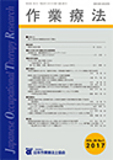Japanese
English
- 販売していません
- Abstract 文献概要
- 1ページ目 Look Inside
- 参考文献 Reference
要旨:本研究では,作業適応の危機を経験しながらも大切な作業を継続もしくは変更をしながら続けている高齢者を対象に,作業の意味生成様式を明らかにすることを目的として,65歳以上の高齢者で地域コミュニティに参加し,身辺処理の自立,認知機能に問題のない方を対象に非構造化面接からSCAT(Steps for Coding and Theorization)を用い分析をした.その結果,作業の意味生成様式として,根本的価値観,方略性,作業がもたらす影響,内外状況との対話という4つの大分類が抽出された.作業適応の危機を通して,内外状況との対話から,自身の根本的価値観や生活を守るための方略性を展開させ,作業を行う中で作業がもたらす影響という語りで意味づけていた.
The aim of this research was to investigate the elderly who are continuing important occupations while simultaneously experiencing a crisis of occupational adaption, and clarify meaningful occupational semantic generation styles. Participants in the study included elderly over 65 years old living independently without dementia, and who participate in the local community. A non-structured interview was used, and the responses were analyzed using SCAT (Steps for Coding and Theorization). Four concepts were extracted through semantic generation styles: fundamental sense values, strategies, influence from occupation, and internal/external dialogues. The results indicate that the generation of the meaning of occupation was carried out in choice of the occupation(display of strategies)along one's sense of values through internal/external dialogues.

Copyright © 2017, Japanese Association of Occupational Therapists. All rights reserved.


